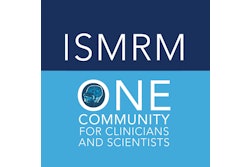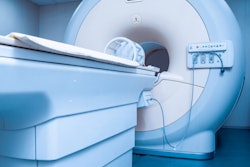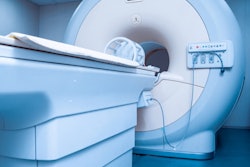
TORONTO - Online screening for patient safety concerns prior to MR imaging effectively reduces workflow delays, according to poster research results presented June 6 at the International Society for Magnetic Resonance in Medicine (ISMRM) meeting.
It also can reduce cancellations after the patient has checked in, presenter and graduate research assistant Sheena Chu of the University of Wisconsin-Madison told AuntMinnie.com.
"With online screening we've seen a decrease in the amount of time that it takes for a patient to get through their safety screening at the beginning of their appointments, so we can keep appointments on time," she said. "For patient care, we have also seen a decrease in post-arrival cancellations."
All patients undergoing MR imaging have safety screening before the exam, including assessment of any implanted medical devices. If this information is incomplete, the exam may be delayed or canceled, which affects the department's workflow.
One way to mitigate this is to conduct MRI safety screening online, before the patient arrives for the exam, the group noted. This approach has been shown to reduce delays, but whether it can work among larger groups of patients remains unclear. To explore the question, Chu's group assessed the impact of online MRI safety screening using data from 14,455 outpatient MR exams. The online screening questionnaire was loaded on a patient portal (MyChart, Epic). The team also noted that, on exam day, patients check in and are given a pager; once the technologist is ready for the patient, he or she undergoes an in-person safety assessment before they enter the scanner room.
Safety clearance delays result in longer times between when the patient is paged and when the first images are obtained, the team noted; this "page time" is recorded in the person's electronic health record. If a patient checked in for the exam but it was not performed, this is also noted.
The team's study assessed the online safety screening tool for a year, starting three months after the program began and reevaluated at 12 months. Patients were divided into the following groups:
- Those scanned before online safety screening ("historical" or "traditional" group, 5,641 exams)
- Those who did not complete online screening once it was available (6,957)
- Those who completed online screening (2,519)
The team found that 36% of patients completed the online MRI screening safety survey. The most common reasons for exam cancellation after patient check-in included claustrophobia, the presence of metallic implants, patient pain or discomfort, or contrast allergies.
| Effect of online MRI safety survey | |||
| Complication | Before online safety scan survey | Safety survey available but patient did not complete it | Completed safety survey |
| Postarrival cancellations | 1.3% reduction | 1.8% reduction | 52% reduction |
| Average time from arrival to imaging | 39 minutes | 39 minutes | 37 minutes |
"Although the 1.9 min average time reduction [between traditional screening and online screening] may not seem significant, it is highly relevant from an operational standpoint," the team noted.
Online MRI safety screening is an effective way to manage department workflow, according to Chu and colleagues.
"Online screening prior to MRI is a useful strategy to reduce workflow delays and post-arrival cancellations related to safety concerns," they concluded.





















